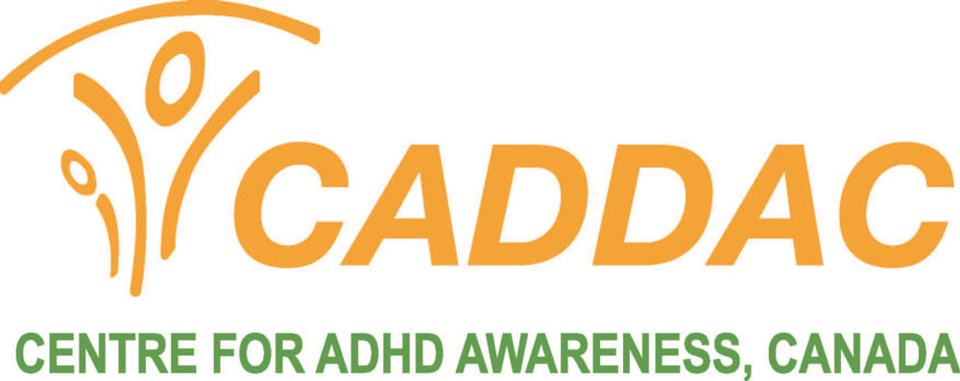|
COVID has highlighted ADHD’s health risk and helped more adults realize that they have been unnecessarily struggling for decades. Toronto ON, September 29, 2020 – CADDAC, the Centre for ADHD Awareness, a national charity working to better the lives of those with ADHD, wants everyone to start recognizing Attention Deficit Hyperactivity Disorder (ADHD) for what it actually is, a serious and in most cases, life-long mental health disorder and significant physical health risk. Back in 2018, shocking even ADHD medical experts, a ground breaking study showed that ADHD could reduce life expectancy by more than 20 years. During this year COVID further highlighted these risks. A recent large-scale study of 14,022 patients in Israel found that the COVID-19 infection rate was nearly 50% higher in individuals who were not being medicated for their ADHD compared to individuals without ADHD. Those being treated for their ADHD showed no greater risk of contracting COVID. Therefore, having ADHD and not knowing it, denying it, or ignoring it, significantly increases your chances of contacting COVID. COVID has also led more adults to seek out an ADHD assessment. Being forced to slow down due to COVID made some adults realize that the things they thought were due to an overscheduled lifestyle were in fact symptoms of ADHD. Their inability to stay focused, get organized, keep track of belongings, remember routines and appointments, be on time, and regulate their emotions did not stop once their busy life slowed down. Krista Broda, 34 from Saskatchewan, credits the pandemic for her recent diagnosis of ADHD. Krista had always blamed her hectic schedule for her inability to stay on task, get organized and keep track of her belonging. Once her world slowed down considerably that was no longer possible. Without a routine and schedule things actually became worse instead of better. Krista says that, “It took a global pandemic for me to discover I have ADHD. I struggled through self-isolation, trying to learn how to relax while having no commitments on the calendar, but nothing seemed to work. A diagnosis and an effective treatment have been nothing short of life changing. I’m a happier person, a more patient mother and I have a much better understanding of who I am.” CADDAC is asking that during October, ADHD Awareness Month and Mental Health Awareness Month, we stop denying these facts about ADHD. CADDAC is asking everyone with an interest in ADHD to help spread real facts about the impact of this disorder by joining our ADHD Speaks Campaign. ABOUT ADHD Untreated ADHD has serious social and economic costs that few recognize. ADHD impairs learning thereby reducing years of education. It increases accidents, physical health disorders, additional mental health disorders, substance use and abuse, and increases offending rates and costs to correction systems. Yet, ADHD is often ignored in mental health campaigns and government funding programs even though untreated ADHD costs Canadians billions of dollars yearly. ABOUT CADDAC CADDAC is a national charity that provides leadership in education, awareness and advocacy for individuals with ADHD and their families. CADDAC provides a wide-range of support and information for, parents, adults, children/adolescents, educators and health care providers through its website, caddac.ca and an up-coming online conference occurring October 17th and 18th. For further information and to arrange interviews: Heidi Bernhard Founder and President CADDAC Phone: 905-471-3524 |




